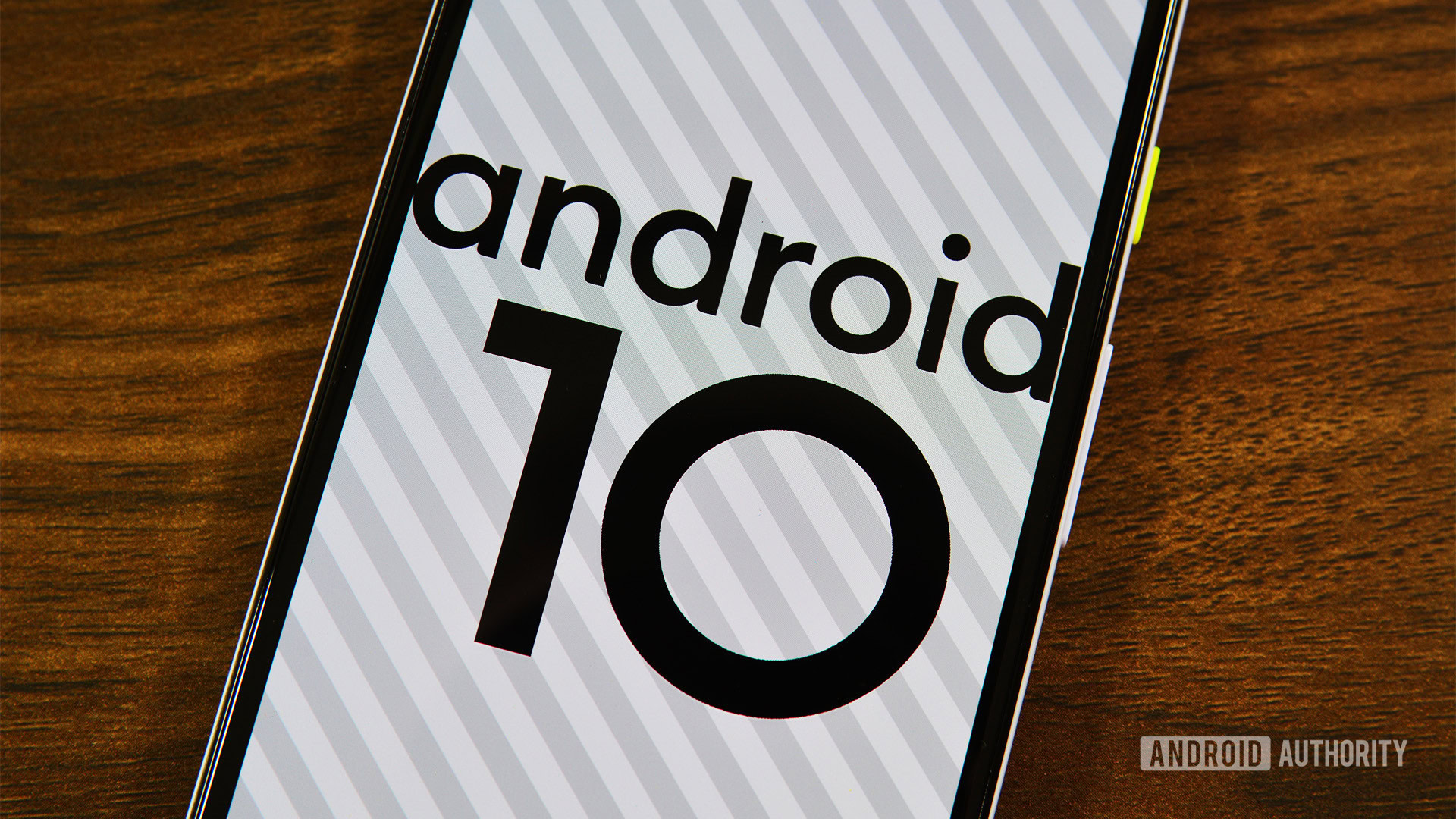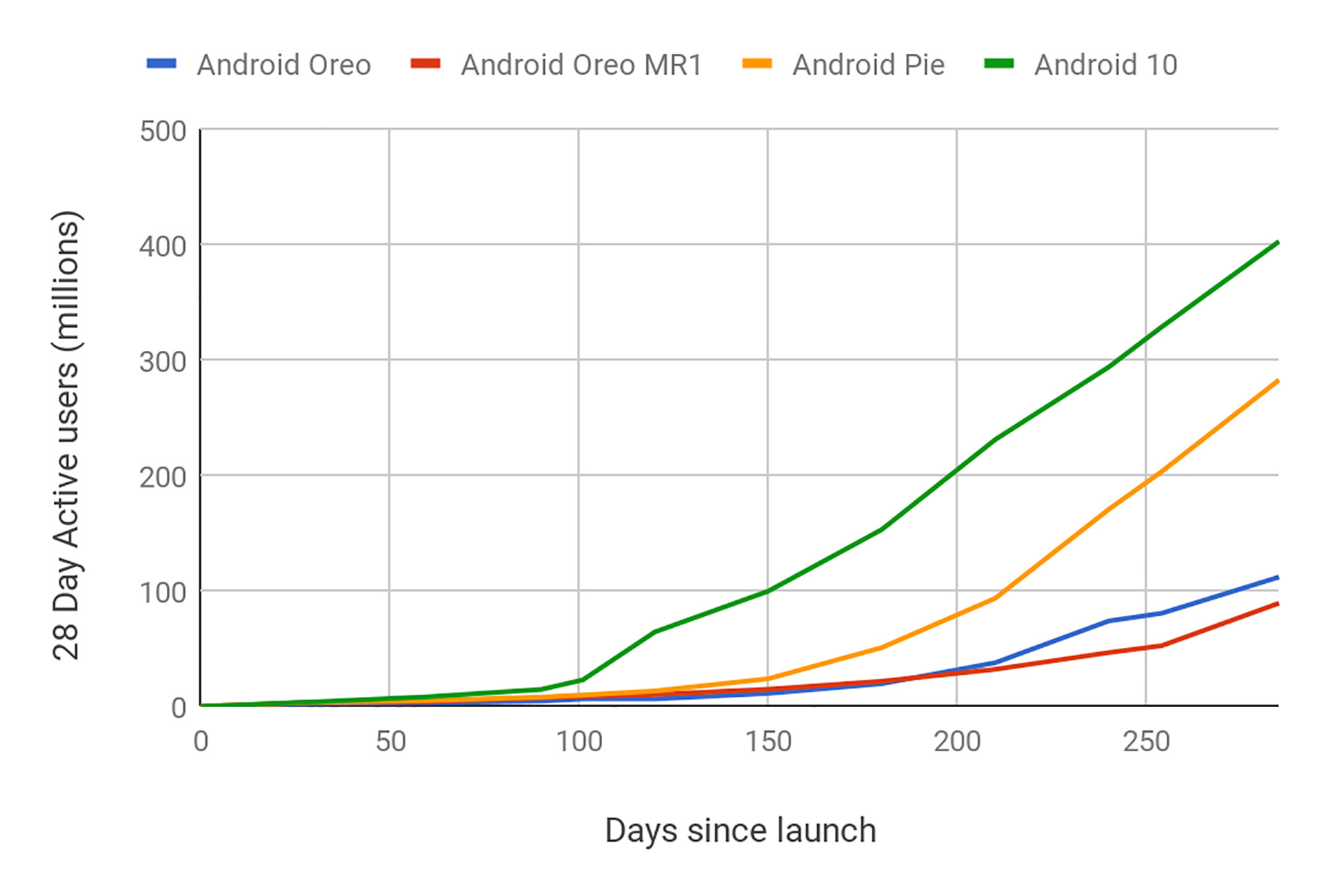Affiliate links on Android Authority may earn us a commission. Learn more.
Google finally reveals how many devices are on Android 10, and it's not bad

- Today, Google released some Android 10 distribution numbers.
- The company has been very quiet over the past year when it comes to data such as this.
- It appears that Android 10 is on 400 million devices.
Over the past year or so, Google has been very quiet when it comes to releasing data on how many devices are running each version of Android. Today, though, the company finally released some hard data when it comes to Android 10 distribution numbers.
In the graph below, you can see for yourself how many devices are using Android 10. You’ll also be able to see that it has surpassed the adoption rate of Android 9 Pie, Android 8.1 Oreo, and the original Android 8.0 Oreo.
Official Android 10 distribution numbers
This chart is a clear representation that Google’s various efforts to increase the adoption of newer Android versions are working. These efforts include things like Project Treble, Project Mainline, and simply putting pressure on Android OEMs to be better.
Thanks to these efforts, the Android 10 distribution rate was 28% faster than Android 9 Pie over the first five months of the operating system’s stable launch. Google Says Android 10 was on 100 million devices at that time.
Related: Google takes down its Android distribution chart without explanation
Google’s most recent reporting of overall Android device numbers said that there are 2.5 billion active phones, tablets, TVs, media streamers, etc. Although it would be very difficult to give an overall percentage with the limited data we have, it’s a safe estimate that Android 10 is likely running on over 15% of all Android devices. Once again, that is a rough estimate, but that’s what we can glean from this data.
Since there are far more Android phones than there are other kinds of devices, it’s a safe bet that the percentage of just smartphones out there running Android 10 is higher than that. However, Google doesn’t give us enough info to even come close to making a proper estimation of Android 10 distribution among just phones.
The future of Android updates
With the overall adoption trend only going up, it will be very interesting to see how Android 11 fares as far as distribution goes in 2021. Thankfully, Google already has plans in the works on how to increase adoption.
Related: Are Android updates really getting faster? Let’s look at the data.
At some point soon, Google will require all Android OEMs to adopt a protocol known as Seamless Updates. As first reported by XDA Developers, this will essentially force OEMs to make it far easier to issue Android updates with the added bonus of making it safer. This is due to A/B testing and partitions, which will set aside a portion of a phone’s internal storage for update purposes.
As of today, even the mighty Samsung does not support Seamless Updates or A/B testing on its phones. This will change soon, though, which will knock another excuse down for why Android OEMs can’t be faster and more consistent when it comes to updating smartphones to the latest Android version.
In other words, this time next year we will very likely see Android 11 beating Android 10’s success right now.
